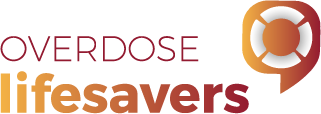Experiences of Overdose
NOTE: Quotes are presented word for word apart from minor editing for readability and clarity. Identifying details have been removed. Square brackets show text that has been added or, where ellipses (three dots) appear, removed. For example, ‘Since I actually participated in this Narcan [training], I’ve administered it to two people and it’s brought them around […] I wouldn’t think twice about [doing] it. Saving someone’s life is the main thing.’
Many of the people we interviewed for this website describe different experiences with opioid overdose. They speak about their own overdoses and those they have witnessed. They recount many different overdose situations and describe a range of different issues that contributed to these overdoses. However, the experiences of the people we interviewed who primarily consumed prescribed opioids for chronic pain do not appear in this section as they reported no experience of overdose.


